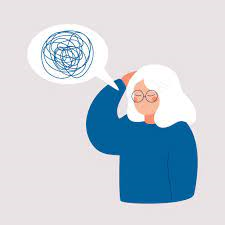Menu

 While caring for a loved one with dementia can be a positive and rewarding experience, it does not come without its challenges. It can be stressful to be in charge of another person’s wellbeing, and it is easy to forget to look after yourself in the process. It can be difficult to find time for yourself and relax, but it is important to remember that your health is just as important as the person’s that you are caring for.
While caring for a loved one with dementia can be a positive and rewarding experience, it does not come without its challenges. It can be stressful to be in charge of another person’s wellbeing, and it is easy to forget to look after yourself in the process. It can be difficult to find time for yourself and relax, but it is important to remember that your health is just as important as the person’s that you are caring for.
It goes without saying that, as a carer, you are entitled to support from the government. It can be both mentally and physically demanding to care for someone with dementia 24/7. You should always prioritise your own health, as difficult as this may be, as you cannot help others when in need of help yourself. It is important to reserve time for yourself in which you can relax and do the things you enjoy without feeling any worry or guilt.
This can be achieved through support groups and day centres. These can be for yourself or your loved one with dementia, as we offer both peer and carer support groups. We also host a dementia day care that runs 6 days a week, so you can pick the days that are most convenient for you. For more information on these services, visit our Social Groups and Activities page, or contact us on 01474 533990 or email info@alz-dem.org.
We also advise that you maintain any relationships that you may already have- do not let dementia take over your life. This may initially seem like an impossible task, which is why ADSS provides carer-specific support groups; in which people are encouraged to share their experiences as carers. It is also an opportunity to share advice and tips that combat certain behaviours that you may find challenging and that others may be struggling with. Not only is it a chance to relax and enjoy a tea or coffee in the company of individuals in similar situations to your own, it can be educational, and might be the difference between your job as a carer being a chore or a choice.
Services such as our daily Beacon Service are an ideal use of your Carers Allowance; a benefit that (if you haven’t already) may be eligible to claim. The Gov.UK website states that if you are 16 or over, you spend at least 35 hours a week caring for someone who already claims certain benefits and you have been in England for 2 of the last 3 years (under certain circumstances), it is likely that you are eligible for Carers Allowance. Failing this, you may be entitled to Carer’s Credit. We recommend that you research these benefits, as they have proved to be extremely beneficial to the carers that we help.
As mentioned before, carers in the UK are entitled to government support. You can usually get Carer’s Allowance if all of the following apply:
If you care for a person or people for at least 20 hours a week, you might be able to get Carer’s Credits. These are credits that fill in gaps in your National Insurance record – this decides whether you can get:
For more information on what benefits you may be entitled to as a carer, see the Citizen’s Advice page.
This World Mental Health Day, let’s honour the year’s theme of ‘[Making] mental health and wellbeing for all a global priority’, by thanking, congratulating, and encouraging each and every carer to seek respite if they feel that their mental health is struggling. It is important to remember that you are never alone, even when feeling isolated or defeated.
For further help and support, please contact us at 01474 533990 or email info@alz-dem.org.
Sign up to receive our email updates
By submitting this form I agree to the ADSS privacy policy, details of which can be found here
Contact Us
Alzheimer’s and Dementia is a registered charity in England and Wales (1173379). A company limited by guarantee and registered charity in England and Wales (10690071). Registered address: Safeharbour, Coldharbour Road, Northfleet, Kent DA11 8AE